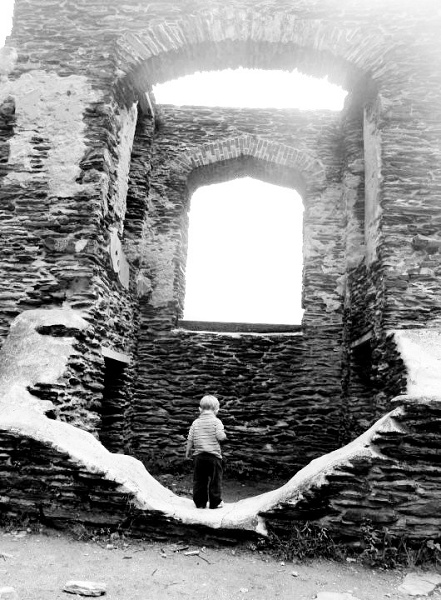You go to the old places compulsively, with all your senses activated, eagerly searching for something you can’t quite define.
You pause by memorials and markers, though you understand they are only starting points.
You know they are not exhaustive. You know that several million words have been omitted—some for space, some for ignorance, and others for fear.
You are the one who feels the gap, the too-long pause—perhaps, some incongruity.
Your soul strains to discover the missing syllables.
You stroll hallowed grounds obsessively, with a peculiar devotion to capturing light, as if rays were a language.
You note its distinctive dance on bricks, on paving stones, on tarred coils of sailor’s rope, on mist-lapped cabin windows, on the rise of some hill where men gave their last.
Glints and glows and shimmers: these are your doorways, your keys to sameness with what was.
Light is your last surviving witness.
You have learned your history through books, yes…but moreso through smells.
Your CV consists of smoke yet lingering about hearth stones; the tickling must of restitched quilts and carpets; the pinch of lacquer over molded walls; soured-egg sulphur on musket barrels; loamy old wine cellars; the grassiness of fresh-shorn wool.
You record every impression in your heart, as if studying for some test, though you are uncertain what exam you are taking.
House tours almost always disappoint you: they move too quickly, and involve too much talking of jewels and china and fame.
You would rather stand just quietly alone, not touching any of those so-called precious things, and just drinking with your soul what is most intriguing to you: the scratches.
Maybe it is a scar upon the door frame, or a chip upon glass, or a fingerprint clear in the mortar.
You worship imperfections as breathing moments, as open stories, as portals through which you might hold some ancient, friendly hand.
You wonder most urgently about the people who made these marks: the famous ones in their less famous moments; the unknown in their beautiful, pitiful day-to-day.
You ache to hear the names of slaves.
Of war zones: You do not especially need to know how many men were slain here, or in what kaleidoscope of nightmares they died—though you probably do.
One life lost is a tragedy to you; in the killing field, you feel the weight of every one.
You walk there dutifully, yes.
But you do not stand upon the earthworks, thumping a swollen chest, romanticizing lost causes to justify death.
You stand, or sit, or lie upon your back on the once-bloodied earth, listening to bees drum and grasses whip, and breathing.
You accept that life sometimes ends without growth, without living, without loving, without a chance to redeem oneself.
You swear that you will learn something from the fallen: theirs will not be your fate.
Perhaps, you even whisper lovingly to them: you now live as they could not.
You wonder, sometimes, why you crave these old places so much.
It’s not normal, is it? There are so few who will bear this journey with you, nerd, and fewer still who understand the sensory means of your time-travel.
Perhaps you come precisely because there are so few—and maybe, in these fingerprints from long ago, in the unwritten histories, you hope to find more.
Perhaps you come to leave your scratch, your fingerprint, for some future poet to hold and wonder about.
Perhaps you come because you have at long-last found some justice, some power, some clarity, and you seek to deliver it where it is long past due.
Perhaps you come to the pained places in time because you, too, are aching. If time can turn the fields of gore into something beautiful, then surely your life can also be healed.
Perhaps you come because someone you know had some dealing here, and you wish to walk with a part of them, to touch them, to know how it was, to wonder at their choices, perhaps to honor, perhaps to forgive.
Perhaps you come to discover your own lost syllables.
Author: Katie-Anne Laulumets
Editor: Renée Picard
Photo: Katie-Anne Laulumets











Read 4 comments and reply